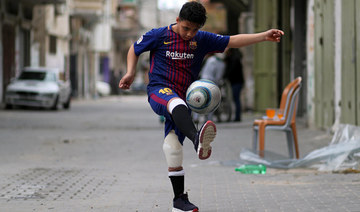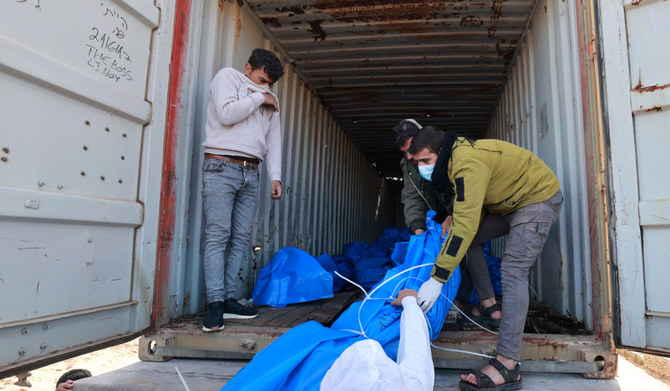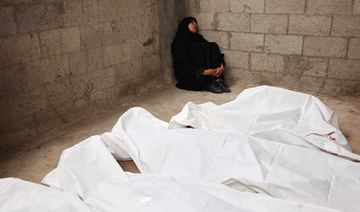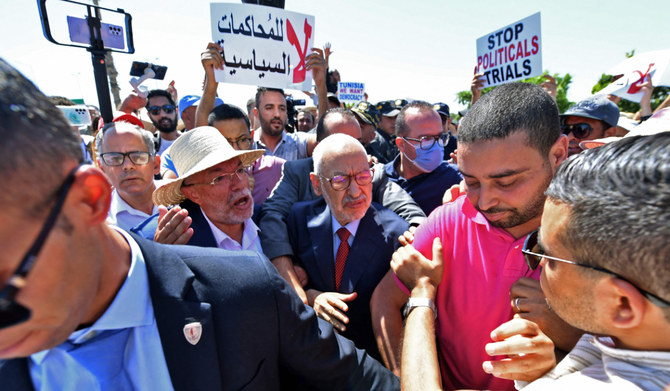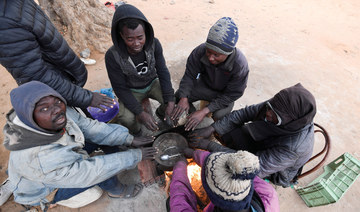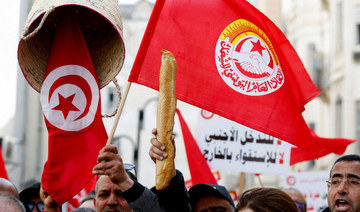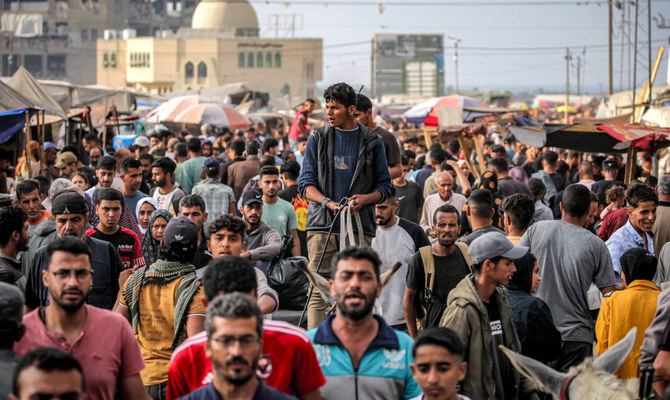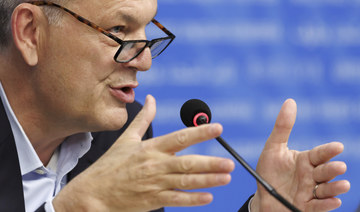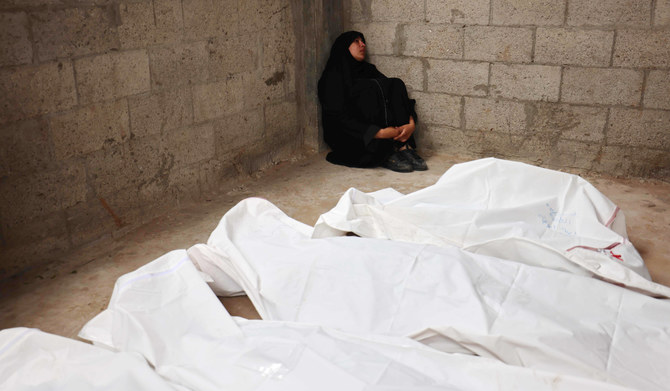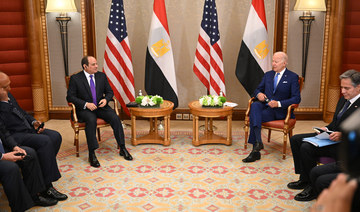DUBAI: The Middle East is embracing artificial intelligence (AI), a new report reveals, with almost all regional companies surveyed expecting to have centralized AI initiatives in the next five years.
The “State of Artificial Intelligence in the Middle East” report, released by Forbes Insights at the AI Everything Summit in Dubai this week, questioned 100 executives in the region who are familiar with their company’s AI strategy and digital transformation.
“The Middle East has an advantage when it comes to the AI race,” said Dr. Hatem Bugshan, head of the Big Innovation Center in Saudi Arabia.
“If you talk about the Middle East, and the GCC (Gulf Cooperation Council) in particular, we see there’s a current agenda of transforming the oil economy into a knowledge economy, so it’s under their current commitment to invest in connectivity and technical infrastructure,” he added.
“This encourages a solid technical infrastructure accelerating the adoption of AI.”
When it comes to this adoption, the report found that Middle Eastern countries are on par with their global counterparts.
“One of the things we found is that AI is a hard problem globally, but the Middle East is very much keeping pace with its rivals,” said William Thompson, managing director of Forbes Insights.
“You’ll find that there are actually more full implementations of AI within divisions of companies in the Middle East than we see anywhere else in the world,” he added.
“When we think about AI, a lot of people talk about some radical break with the past, rather than what it actually is: The final (step) on the ladder of digital transformation.”
Thompson described the state of digital transformation in the region as very much keeping pace with what is happening in the rest of the world.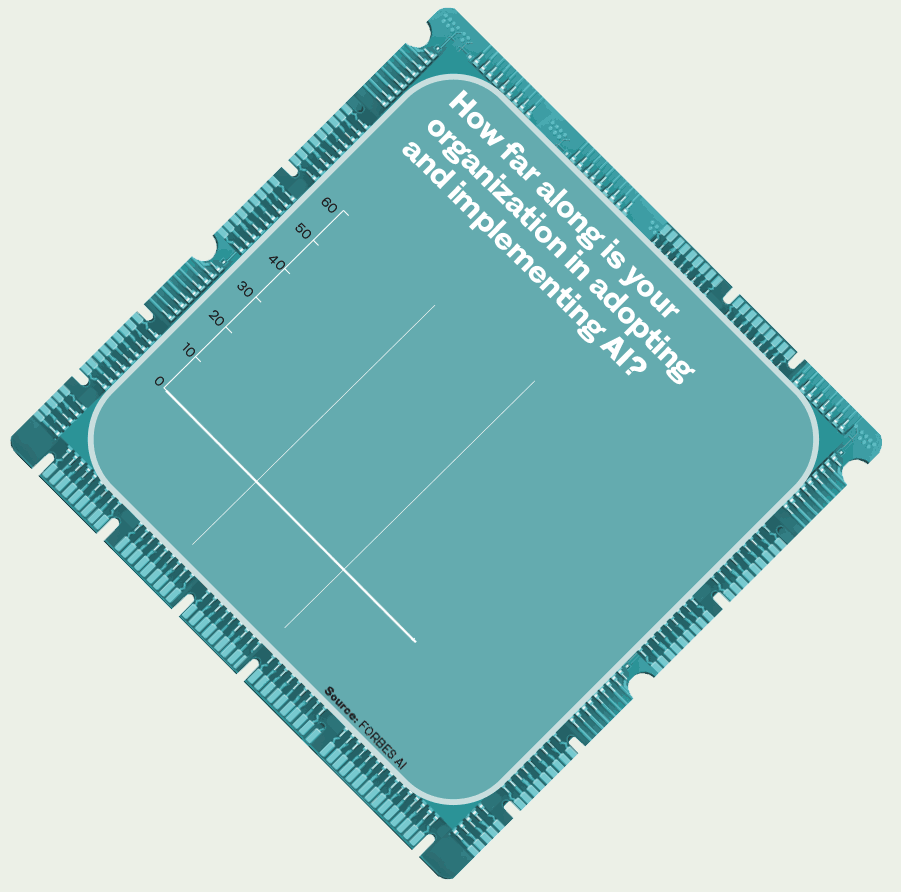
“What’s interesting is that everyone thinks AI is important for the success of their company,” he said. “But in the Middle East, that sentiment is far stronger than we see in other places.”
Bugshan spoke of the region’s youth as its most valuable asset rather than oil, allowing the Middle East to have an edge over the rest of the world.
“A key fact is that youth consist of 30 percent of our total population in the Middle East, which is a huge number,” he said.
“So if we try to upscale those generations, after 15 to 20 years they’ll be capable of leading their country in being early adopters and successful implementers (of AI). Our key factor in the Middle East is to invest in youth.”
Experts said AI and data are suitable areas for women to work in and add value to the region’s economic wellbeing.
“The region is bold about AI, and they want to take it to the next level,” said Bashar Kilani, IBM executive for the Middle East.
“However, it all starts with data. Governments in Saudi Arabia, the UAE, Egypt and Jordan have AI and digitization strategies focusing on enabling the data that will help the transformation,” he added.
“The youth is a great asset in this region, but even more is the empowerment of women,” he said.
“Today, 50 percent of university graduates are women, but only 15 percent are working in the workforce.”
The report revealed a more visionary way of thinking about and using AI in the region.
Although companies tend to focus on using the technology to improve operational efficiency, the region is more concerned about its relationship with customers.
“Elsewhere, AI is more of a decision-making tool to help senior executives plot their financial strategies,” Thompson said.
“But here (in the Middle East), there’s a much more advanced view of this as a way to improve the customer experience and to reduce customer acquisition cost, which is perhaps where these can be the revolutionary tools.”
Another benefit found in the Middle East is that budgets are not as much of an issue as they are globally, with far more AI initiatives underway in the region than elsewhere.
“It’s a very heartening sign. In the US, one of the biggest problems we face is we can’t get a budget to build something until it’s proven, but you can’t prove it until you build it, so we get stuck in that cycle,” said Thompson.
“That’s not an issue here in the Middle East. The budget is available, and there’s the vision and realization that sometimes we need to take a leap to try things that aren’t proven.”
However, not all the report’s findings are comforting. An issue found across the board, which is slightly more exacerbated in the region, is access to high-quality IT talent to implement this vision, ranking in the top five barriers to the successful implementation of AI.
A total of 35 percent of respondents admitted a lack of available IT staff with AI expertise, compared to 29 percent globally.
“One of the biggest challenges is talent,” said Evans Munyuki, group chief digital officer at Emirates NBD.
“It’s a bit challenging attracting and retaining top talent with AI skills in the region.”
Workforces in the region are being retrained to ensure they have adequate skills to learn how to use data and new technologies.
However, getting the data correct in the Middle East, including ensuring the right data is collected, fixing data fragmentation and quality issues, will prove crucial in ensuring a smooth and successful transition to AI.
While half the companies surveyed feel their data is ready for some departments or functions, fewer (44 percent) said their data is ready enterprise-wide.
Some of the struggles they face are related to scaling infrastructure and computational power for current and future AI workloads. “It all starts with data and equality of the data that we have,” Kilani said.
“There’s no AI without IA, which is an information architecture. We have an abundance of data, but we have to ensure we have it in a way that we can use it to deliver applications and technologies around that.”
Bugshan said data is a key issue globally. To date, “we don’t have any clear mechanism about how we can establish trust between users and their data to be used between companies,” he added.
“There’s a lack of trust, so it’s about how we make a trust protocol, which will be the next focus now, and to make a policy for users to know how their data will be used.”
Although regional governments are putting their efforts into creating data laws, more work needs to be done in changing mindsets.
“The general approach of governments when they plan to adopt a certain technology is to start making a strategic plan for the next five years, with the assumption that nothing will change,” Bugshan said.
“However, this is far from the reality. We have to move to a new paradigm to creating a system bringing government, academia, civil society and the private sector together, making a small-scale prototype to experiment with the private sector and get feedback,” he added.
“Based on that, you can have a real-time strategy that fits the purpose. It’s about creating a taskforce, sharing information and basing your policy on the real feedback.”
Another area of focus, which will also have to improve in this part of the world, is research and development.
“The Middle East really has a number of positive shining points, but it’s missing out on creating AI and the development and research part,” Kilani said.
“This is why we’re focusing on discussing the possibility of collaborating between the public and private sectors as well as academia and industry on research,” he added.
“In this part of the world, it’s an area that needs some focus to help us scale the whole AI story beyond what it is today.”




